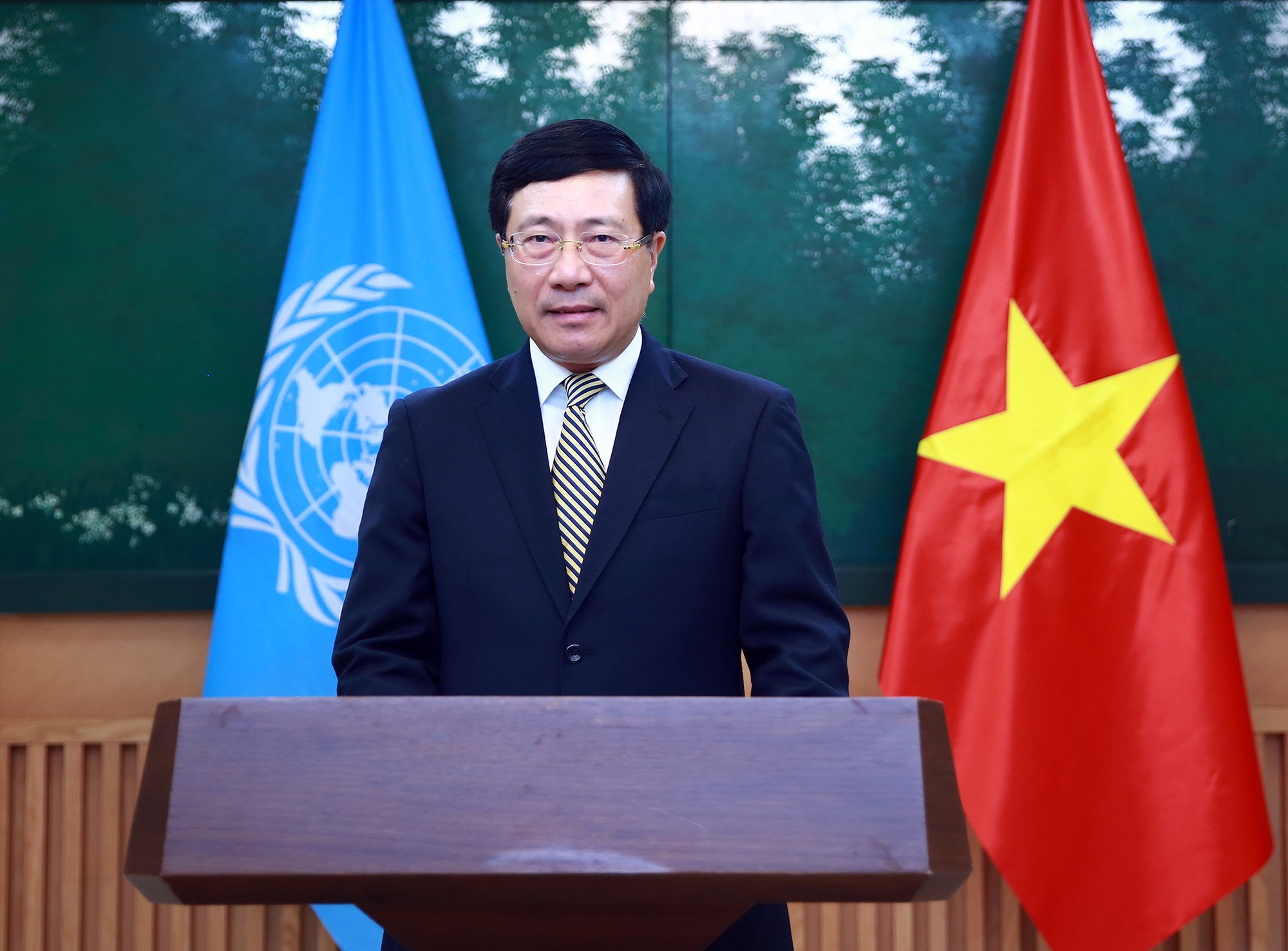Deputy Prime Minister Pham Binh Minh on April 27 sent a video message to the 77th Session of the United Nations Economic and Social Commission of Asia and the Pacific (UNESCAP) at the invitation of A.S.Alisjahbana, UN Under-Secretary General and UNESCAP Executive Secretary.
 Deputy Prime Minister Pham Binh Minh (Photo: VNA)
Deputy Prime Minister Pham Binh Minh (Photo: VNA)– Deputy Prime Minister Pham
Binh Minh on April 27 sent a video message to the 77th Session of the United
Nations Economic and Social Commission of Asia and the Pacific (UNESCAP) at the
invitation of A.S.Alisjahbana, UN Under-Secretary General and UNESCAP Executive
Secretary.
In his
remarks, Minh affirmed that for the past year, thanks to national efforts and
the valuable cooperation and support of the international community, Vietnam has
fundamentally put the pandemic under control, ensuring social protection and security
and economic growth recovery, attaining our “dual goals” of pandemic prevention
and social-economic growth and recovery.
“Vietnam has also adjusted our short and long-term policies in transforming our
growth model into one that is based on technologies, innovations, increasing
the quality of economic growth to sustain production and rapid post-pandemic
recovery towards sustainable development,” he said.
As the Chair of ASEAN in 2020, Vietnam pursued important initiatives within
ASEAN to further efforts against the COVID-19 pandemic, towards the recovery of
regional supply chains and ASEAN connectivity in coherence with sustainable
development. It has also actively participated in the strengthening of the Mekong
cooperation frameworks and the adoption of APEC Vision to 2040.
According to the Vietnamese
official, the United Nations needs to continue to play its central role in
policy cooperation and coordination to effectively implement a
comprehensive strategy to tackle the pandemic, including having vaccines as the
common good of the international community, ensuring fair, equitable and timely
access to vaccination, to diagnosis and treatment of the COVID-19.
In addition, countries need to
enhance international cooperation at all levels in practical experience and
knowledge sharing in order to implement post-pandemic recovery strategies and
policies, which are suitable for each country’s context, conditions and
priorities, he noted.
“It is imperative to enhance regional cooperation on trade and investment,
tourism and innovative economy, energy, as well as on digital economy,
including eradicating digital gap, repairing supply chains disruption, ensuring
the continuous flows of goods and supply chains, enhancing regional economic
integration and development of high-quality human resources so that the
Asia-Pacific region continues to be the forefront of international economic recovery,”
he stressed.
The 77th Session of the
UNESCAP was attended by Presidents and Prime Ministers of 18 countries,
including the Presidents of Indonesia and Afghanistan and the Prime Ministers
of Cambodia and Pakistan. In their remarks, they shared experience in pandemic prevention
and control, called for strengthening multilateral cooperation, and suggested
UNESCAP continue its role of coordinating cooperation and information
and experience sharing at the regional level.
The four-day session, themed “Building
back better from crises through regional cooperation in Asia and the Pacific,
will wrap up on April 29.
UNESCAP is one of the five regional
socio-economic commissions of the United Nations. Its main function is to
provide policy consultations and serve as a bridge for experience and knowledge
sharing among member countries in economic, social and environmental fields.
Currently, UNESCAP has 53 member countries which are located in the
Asia-Pacific region./.